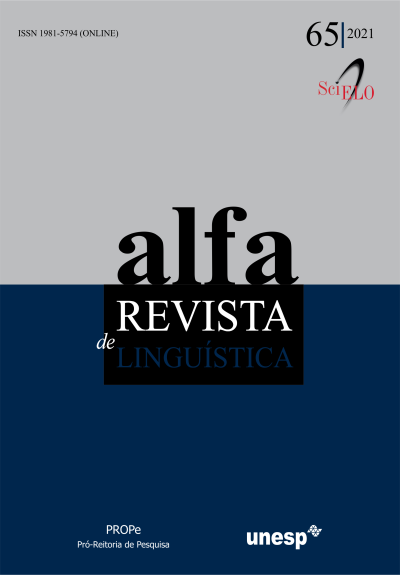The development of sociolinguistic awareness and success in reading performance
DOI:
https://doi.org/10.1590/1981-5794-e13027Keywords:
reading aloud, Sociolinguistic awareness, social evaluation, reading comprehensionAbstract
National and international assessments show that Brazil fails to teach reading in its entire school system. This paper argues that the explanation for part of these students’ success in early learning of reading might be related to the development of sociolinguistic awareness. The rates of variation in eight phonological variables (-ow monophthongization, -aj, -ej monophthongization, diphthongization, coda -r deletion in nouns and in verbs, -d deletion in -ndo, cluster simplification, and vocalization of palatal lateral) in three different stylistic contexts (from - to + monitored speech: short interview -> naming picture task -> reading aloud task) collected in a 3rd grade classroom show a gradual relation between the increase in stylistic monitoring and the use of standard variant and a positive effect in the performance in a reading comprehension test. These results reveal that the development of sociolinguistic awareness can be measured by the transposition of the variant into spontaneous speech for the reading aloud, suggesting automaticity in the decoding process by lexical route.
Downloads
Downloads
Published
How to Cite
Issue
Section
License
Manuscripts accepted for publication and published are property of Alfa: Revista de Linguística. It is forbidden the full or partial submission of the manuscript to any other journal. Authors are solely responsible for the article's content. Translation into another language without written permission from the Editor advised by the Editorial Board is prohibited.

